Blog Posts Tagged Technical Content
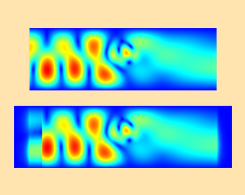
Modeling Waveguides that Support Multiple Modes
2 ways you can model a waveguide that supports multiple modes: add a PML that can be used to absorb any modes, or explicitly add ports for each possible mode.
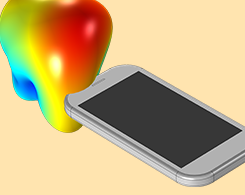
Computational Electromagnetics Modeling: Which Module to Use?
If you work with a particular electromagnetic device or application area, you might be wondering which module in the COMSOL product suite is right for you. Keep reading for a comprehensive intro.
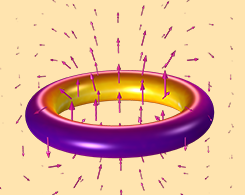
Course: Modeling Electromagnetic Coils in COMSOL®
Get an overview of our Learning Center course on modeling coils using COMSOL Multiphysics and the AC/DC Module, from setting up a coil model to analyzing electromagnetic heating and more.
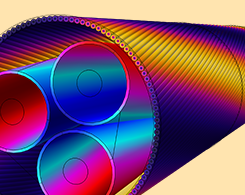
Using 3D Models to Investigate Inductive Effects in a Submarine Cable
It takes a modern desktop computer ~30 minutes to compute a 3D cable model with twisted magnetic armor. Consequently, 3D cable models are replacing empirical models in the power cable industry.
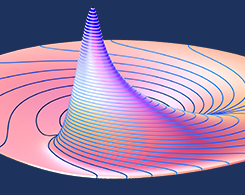
Exploiting Hardware Parallelism with COMSOL® Batch Sweeps
What is a batch sweep? How do I set up a batch sweep for my model? How much batch parallelism can COMSOL Multiphysics® exploit? We answer these questions and more…

Introduction to the Elastic Waves, Time Explicit Interface
From nondestructive testing to seismic wave propagation in soil and rock, there are many application areas that involve the propagation of elastic waves in solids and vibrations in structures.
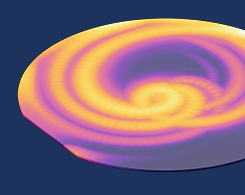
How to Use State Variables in COMSOL Multiphysics®
As of COMSOL Multiphysics® version 5.5, you can use state variables to track the state of your model; affect other fields, such as material properties; and even implement hysteresis.

Modeling Heat Transfer in Thin Layers via Layered Material Technology
We answer some questions you may have about the Layered Material functionality in the COMSOL® software: What does it do? How do you update existing models? How do simulations benefit from it?
